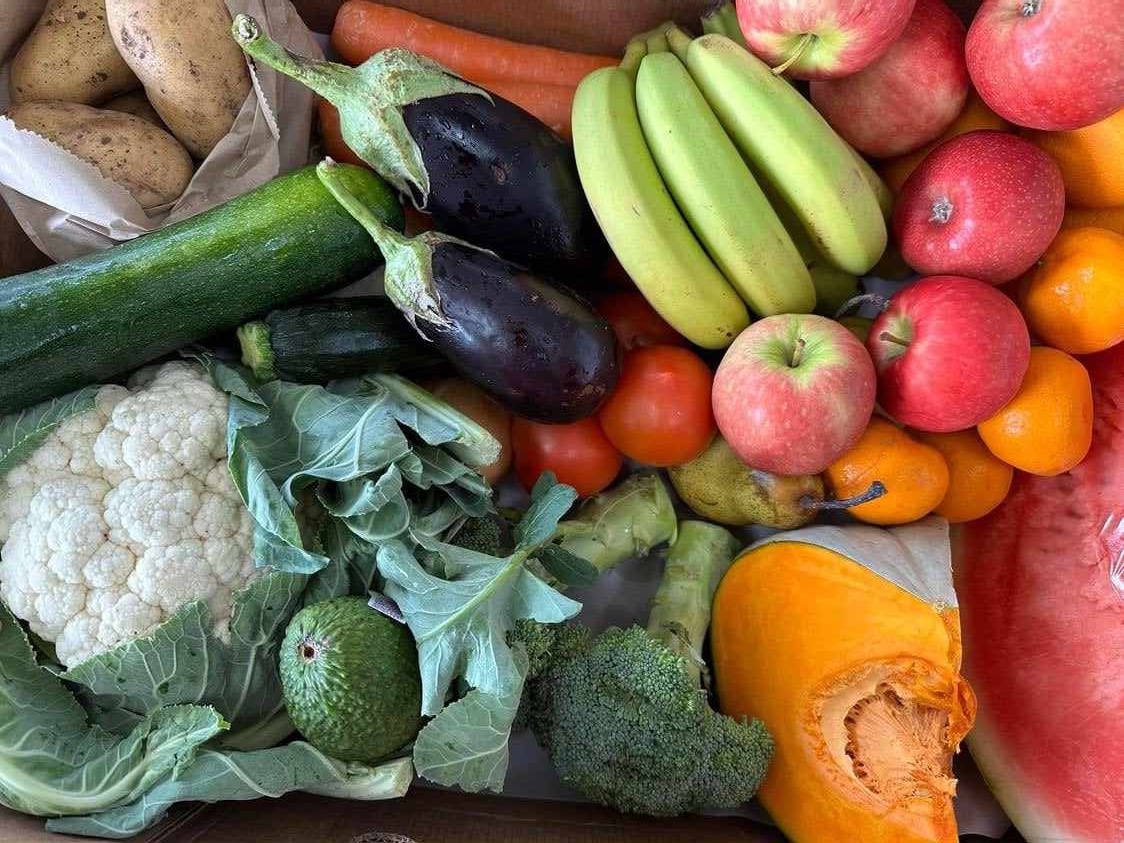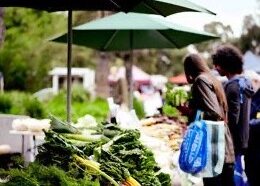Farmers’ Markets
Farmers’ markets are physical markets that run periodically in urban and regional areas to improve access to local food and to give producers an opportunity to market directly to consumers, thus achieving higher margins and developing face-to-face relationships. Farmers’ markets may be accredited through various farmers’ market associations to ensure that stallholders are truly the growers and that no produce is coming from the wholesale markets.
Accredited Farmers’ Markets are underpinned by guiding principles, which include only stocking produce from that state or within a specified distance from the market, offering free range and organic options and supporting small to medium scale family farms. At an accredited farmers’ market customers can be assured that 100% of their shopping dollar is reaching the producer.
Farmers’ Markets play an integral role in connect eaters with the people who grow their food and enable producers to educate their customers on seasonal variations, alternative cuts of meat, challenges on farm etc.
A challenge of farmers’ markets for producers is that it favours farms that are located within easy commuting distance to cities. There is a large time commitment to attend regular markets, with some families unable to be away from the farm for that long. There is also a limited number of stalls available, as well as a lot of work involved to build up a loyal and strong customer base.
Farmers’ Markets have been a driving force behind the local food movement and offer a fair and sustainable alternative to large retail models. They are great for farmers as they give them immediate access to a customer base. There is immense scope to extend the success of Farmers’ Markets beyond their physical location.
Some examples include:
Farmers’ Market as a Food Hub/Food Aggregator
Provide the opportunity for customers who are unable to attend a market to place an order and have it packed and delivered from the Farmers’ Market location – thus offering all the range and benefits of a market, without needing to attend.
This concept also saves on logistics and transportation costs borne from many small producers making multiple weekly trips into cities to deliver their goods.
Farmers’ Markets as a shopfront
Retail outlets to mirror the farmers’ market experience and range, with improved access due to longer opening hours. This may also address issues of food waste and transportation, whereby producers can bring their orders when coming in for a weekend market or drop off excess stock prior to heading back to the farm after a market day. There are considerations around supporting and staffing a retail store whilst enabling prices to remain competitive and farmers to receive a fair price, however, there is much to be gained from exploring offering that further extend the successful farmers’ market model.
Case Studies / Websites
Victorian Farmers’ Market Association

Latest Resources
Can we help?
Have an idea, a project or a question? Want help using the Open Food Network software? Get in touch and find out how we can help you with it.
Keep in touch
Join us
Create a listing, shop or group directory on the Open Food Network. Tell me more!

Read our Terms and conditions | Find us on GitHub
Open Food Network is a free and open source software platform. Our content is licensed with CC BY-SA 3.0 and our code with AGPL 3.
We take good care of your data. See our cookies policy




